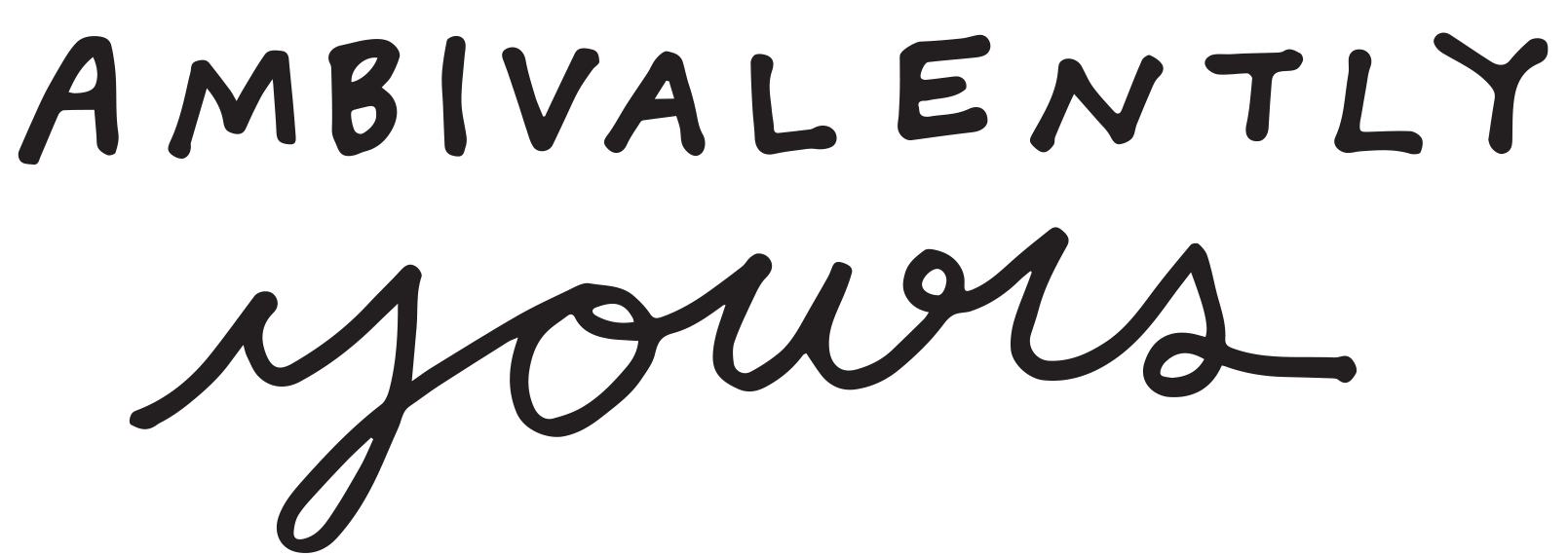Episode 17: Max
Content Warning: This week we discuss eating disorders, and while we tried our best to approach this topic as responsibly and thoughtfully as we can, it is still a potentially triggering episode.
Here’s the question that inspired this week’s episode (the message has been slightly altered to preserve anonymity): I have been “mildly” anorexic for three years and “mildly” bulimic for a year, but I am now in the process of recovery. “Mildly” was part of the diagnosis, but I am not sure I agree with this term. I ate only enough to subsist on and my mind was consumed by food but I was still able to continue a relatively productive life. Not fitting into the image of the extreme anorexic meant that I did not think that my situation was severe enough to seek treatment. Not recognizing ambiguity (ambivalence!) failed me.
It’s not always realistic to expect ourselves to “love” our bodies all the time. And that’s okay. Instead of pressuring ourselves to “love” our bodies, we can learn to respect our bodies, and give thanks for all they do. Unfortunately, we live in a world that is constantly telling us that our bodies are something to be fixed and “worked on.” This week, we discuss our complicated relationships with our bodies, and how we can try to show more care for ourselves and each other.
Some helpful resources:
www.cci.health.wa.gov.au/Resources/Looking-After-Yourself/Disordered-Eating
www.cci.health.wa.gov.au/Resources/Looking-After-Yourself/Body-Dysmorphia
nedic.ca/blog
nedic.ca/give-get-help/help-friends-family
everydayfeminism.com/2013/11/mythbusting-ed-recovery/
Commonly associated to EDs:
www.cci.health.wa.gov.au/Resources/Looking-After-Yourself/Perfectionism
Set point theory:
nedic.ca/set-point-what-your-body-trying-tell-you
About changes to your body during recovery (it won’t stay that way forever, I promise!): www.psychologytoday.com/ca/blog/hunger-artist/201402/recovering-anorexia-how-and-why-not-stop-halfway%3famp
Books:
“The Body Image Workbook: An Eight-Step Program for Learning to Like Your Looks”
by Thomas F. Cash PhD
A podcast by Ambivalently Yours
Co-produced by Hannah McCasland
Recorded at Oboro Artist-Run Center in Montreal
Technical support: Stéphane Claude
Music: Greg Barkley
SUBSCRIBE ON ITUNES
SUBSCRIBE ON STITCHER
SUBSCRIBE ON SPOTIFY

